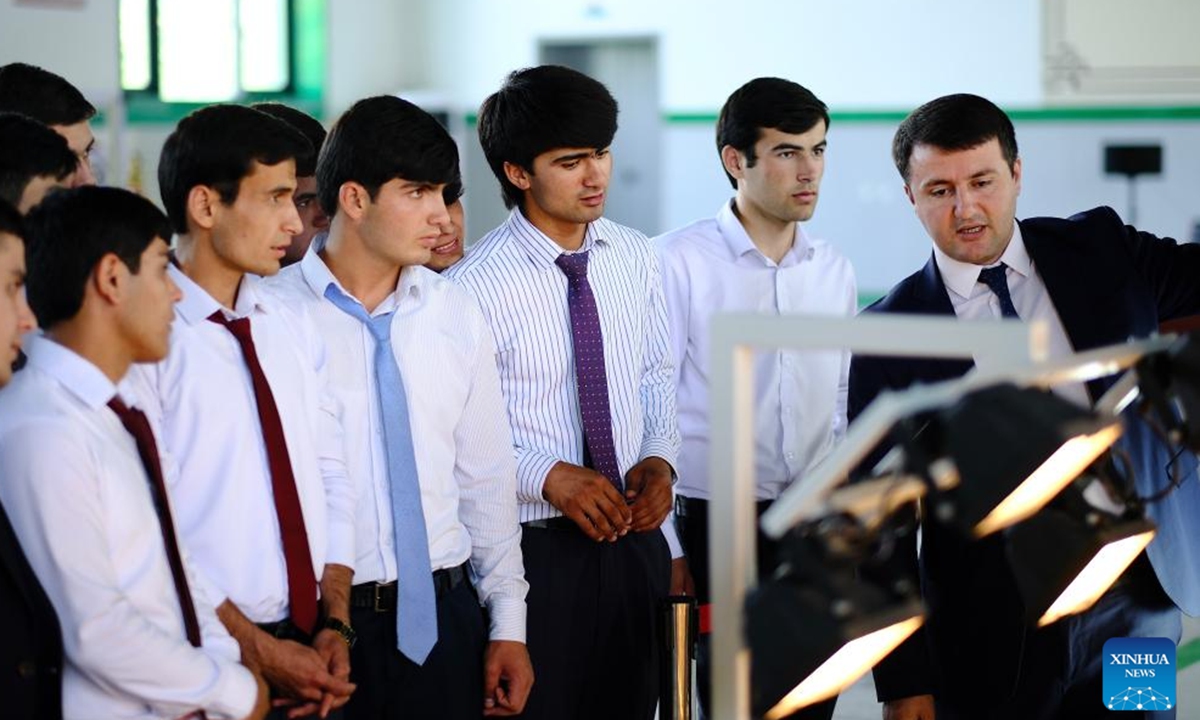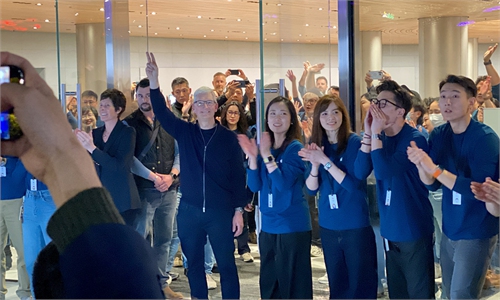How does Luban Workshop win the hearts of the Global South?: Global Times editorial

Students listen as a teacher gives instructions at the Luban Workshop in Dushanbe, Tajikistan, June 14, 2024. Photo: Xinhua
The South China Morning Post recently paid attention to the "Luban Workshop," a vocational education and training network that China is establishing in cooperation withmany African and Asian countries, saying that it benefits the local people and boosts China's influence. This is not the first time that overseas media covered reports on Luban Workshop. The Washington Post also mentioned in a report that more than a dozen teachers, students and alumni of the Luban Workshops it interviewed in Indonesia, Ethiopia and South Africa "were strikingly grateful to China." Luban Workshop is quietly becoming popular in the countries of the Global South and winning the hearts of the local people.
Luban Workshop's popularity is not a coincidence. It is not a project created by China out of thin air, but is deeply rooted in China's concept of promoting the building of a global community of shared future and promoting high-quality joint construction of the Belt and Road Initiative.
The Washington Post gave an example of a Luban Workshop in Indonesia: In Ponorogo, East Java, Indonesia, 16-year-old Alfirdaus began to learn how to operate a drone, which he even didn't know what it was before. The Luban Workshop has trained about 3,600 students in the county so far, and about 72 percent of the students have found jobs after graduation. This is just a microcosm of the public goods Luban Workshop provides to the world.
It is because of this that the vigorous development of Luban Workshop has attracted global attention. From the opening of the first Luban Workshop overseas in March 2016 to now, this Chinese vocational education brand has spread across 29 countries, offering 57 majors in 14 categories, ranging from artificial intelligence, electric vehicle maintenance, civil engineering, IoT management to traditional Chinese medicine, Chinese food cooking, and etc. More than 10,000 students have participated in academic education, and more than 22,000 people have benefited from vocational training.
What is more eye-catching than the speed of development is its reputation. The Luban Workshop in Addis Ababa, Ethiopian has been designated by the African Union Headquarters as a high-quality skills training center for the entire African continent. Egypt's minister in charge of technical education recently told Xinhua that he was "proud" the country had two of the training centers.
Some Western media outlets have attempted to attribute certain purposes, particularly "political purposes," to the Luban Workshop, which is undoubtedly futile. In fact, if China does have any "purpose," it is an open and legitimate one. "The Chinese people not only hope for a good life for ourselves, but also wish a good life for people in other countries." The Luban Workshop is designed to combine China's rich experience in vocational education and hardware resources with local human resources, focusing on the most fundamental element: people. This approach shifts away from the previous habit of emphasizing financial and material aid in foreign assistance, genuinely enhancing people's vocational skills and competence.
As a result, many teachers, students, and alumni of the Luban Workshop express heartfelt gratitude toward China, and more and more people are gaining the skills needed to make a living through the workshop. As the overall quality and technical skills of the local people improve, the environment for long-term cooperation between Chinese enterprises and local communities is also being optimized.
Looking back at the development of the Luban Workshop, one can see clearly that its emergence and growth have always been the result of cooperation between China and other countries, focusing on the actual needs of the local areas.
The Economist noted that the workshop was not always restricted to Belt and Road participants; countries like the UK, Portugal, and India have also established or once had Luban Workshop.
From the first Luban Workshop in Thailand, which offered courses in mechatronics, new energy vehicle technology, and high-speed train maintenance, to the second one in the UK, which taught Chinese culinary arts, and to those in Portugal, teaching industrial robotics, in Kazakhstan, teaching green energy technology, and in Kenya, teaching artificial intelligence and cloud computing, the different teaching content of the Luban Workshop is essentially tailored to meet the varying skill demands of the local areas.
China's approach to international cooperation projects is open-minded, and the Luban Workshop itself is a reflection of learning from advanced international vocational education concepts. China's international cooperation projects always emphasize the word "cooperation," never attaching political conditions, and from the very beginning, China positioned itself on an equal footing with its partners.
The Luban Workshop is welcomed in many parts of the world, and there is a saying that these places choose to "produce for the world" together with China.
In this sense, the Luban Workshop has created a "sustainable and mutually beneficial" model for China and the world.



